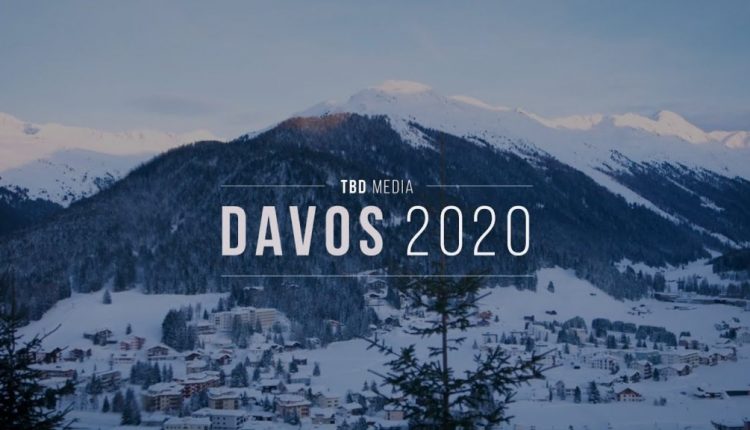With government figures, chief executives, and leading entrepreneurs of the world all gathered in one place, Davos is once again all over the news. The Swiss resort-city is hosting the 50th World Economic Forum (WEF) meeting.
Each year, the global elite come to the isolated mountain town, not to ski, but to discuss world policy in terms of an agenda set by WEF Founder Klaus Schwab, from climate change to the world’s fourth industrial revolution.
In this edition, the delegates of the forum are to attend talks on a myriad of urgent topics, yet despite the diversity of the speakers and the bullet points of the agenda, one issue looms over the forum’s meetings like no other. The threat of the environmental crisis has stood out as the theme of Davos 2020.

Last year, a number of climate-related catastrophes led to serious concerns about the future of our world. Today, for the first time ever, climate change related topics occupy the top five slots in WEF’s annual report on the greatest risks facing humanity, and leaders of the world have come from all over to agree on an action plan on what to do next.
The theme of this year’s gathering is “stakeholders for a cohesive and sustainable world”, wherein top executives are vowing to focus on employees, customers, and the environment as much as they do on stakeholders.

It seems, however, that not all are on board with a unified vision; in his Davos speech, the U.S. President Donald Trump warned against what he called ‘the prophets of doom’, referring against climate activists just hours after a young Greta Thunberg had the floor. Trump is a stern denier of man-made climate change, describing it as a hoax. Thunberg, the Swedish, 17-year-old climate change activist, dedicated her speech to criticizing world leaders on not doing enough to divert the inevitable. She went on to demand that investments in fossil fuel exploration and extraction come to an end, but will the world listen?
Executives from the world of tech are making promises, with Satya Nadella, CEO of Microsoft, pledging that the software giant is to be carbon negative within a decade. Google’s Sundar Pichai and Huawei’s Ren Zhengfei will all address the forum.
In an effort to turn words into actions, Davos 2020 has encouraged its attendees to come using low-carbon transport such as boarding trains, instead of the lavish, fuel-consuming private jets that are used to bring in participants each year. Furthermore, organizers have asked attendees to walk the snowy promenade between meetings rather than take cars, and finally, the caterers are bringing in vegetarian menus with alternative protein sources. All of these are wonderful gestures, but will the message get through?
Our world is on the brink of an all-out environmental disaster, and those in charge know it, but refuse to take necessary action. Hopefully, this year’s WEF is a step in the right direction.



